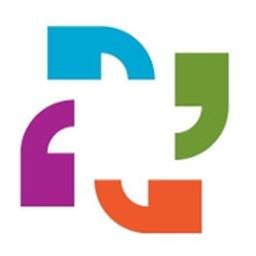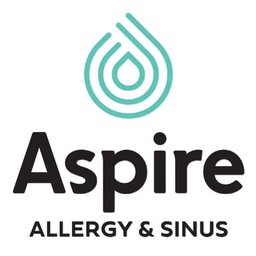Faculty Mentors have an academic responsibility to aid Learners in achieving their educational objectives using relevant tools, resources, and materials incorporating Learner needs and real-world contexts. Faculty Mentors also support course, program, and institutional levels of educational outcomes using proper instructional and assessment strategies. Faculty Mentors must be able to provide effective and responsive academic instruction, counseling, and mentoring verbally and in written form.
Faculty Mentors have the following responsibilities without utilizing assistants or subcontracted parties. Such duties and responsibilities shall include, but are not limited to:
- Instructional Duties: Faculty Mentors shall (a) facilitate courses; (b) create and/or revise course content, syllabi, and/or related materials; (c) participate in Learner-related activities; (d) engage in curriculum development reviews; (e) assess Learners; (f) develop their capacities within the Canvas LMS, and (g) perform other duties as assigned by the Dean.
- + Faculty Mentors are charged with responding to discussion posts and Learner inquiries within 24-48 hours and provide substantive feedback, within 5-7 calendar days, on assignments as well as submitting final grades within seven calendar days of the course end date.
+ Faculty mentors are expected to serve on the doctoral project committees and, are required to provide feedback on drafts within 10 business days following the review request.
- Demonstrate expert knowledge in one's discipline while enthusiastically facilitating learning spaces enabling students to learn.
- Maintain gradebooks and other documentation within Canvas.
- Attend virtual orientations and organizational events during assigned academic terms
- Demonstrate the ability to work with diverse student populations.
- Demonstrate effective problem-solving skills during verbal and/or written communications.
Faculty Mentors accept the following responsibilities:
- Respond to learners given the above time frames-inclusive of returning phone calls, answering emails, addressing content questions, and assisting learners
- Supply constructive, substantial, and prompt feedback and assessment of submitted materials
- Actively engage learners in discussion forums
- Engage in ethical grading practices and ensure grades are submitted per university policies
- Inform school Deans of learner issues-including academic integrity violations, non-responsive or struggling learners, and violations of code of conduct
- Engage in course development, review, and revision processes
- Adhere to the ethical standards and policies of the university while promoting academic integrity, honesty, and rigor
- Participate in faculty governance/committees and/or university/school committees
- Attend university and school events, meetings, and training, as needed
- Potentially serve as course lead faculty (or another similar role)
- Engage in scholarly and/or professional research practices
- Demonstrate the ability to produce professional communications; and
- Engage in community service activities or demonstrate community engagement.
Occasionally, the Dean may require Faculty Mentors to:
- Supervise Learners attending courses, practicums, and other department learner-centered events
- Prepare and present materials within courses
- Prepare and present evidence of Continuing Education (CE); and
- Assess the quality and content of oral presentations (including doctoral project defenses).
- The Mentor position does not have any supervisory responsibility.
To perform this job successfully, an individual must be able to perform each essential duty satisfactorily. The requirements listed below are representative of the knowledge, skills, and/or abilities required. Reasonable accommodations may be made to enable individuals with disabilities to perform the essential functions.
Except for special extenuating circumstances, such as extensive and recognized professional expertise and experience, Faculty shall possess professional experience related to the mentoring assignment and an accredited college degree equal to or higher than the degree sought by the assigned Learner, and a minimum of three years of online teaching experience. Previous experience with online instruction and learning management systems is required. Experience with Canvas LMS is preferred.
School of Behavioral Sciences:
- Terminal degree from a regionally accredited institution in clinical psychology or counseling psychology
- Active license: Licensed Psychologist
Ability to analyze and interpret general periodicals, professional journals, and technical material related to the academic discipline, and University policies and procedures. Ability to prepare reports, business correspondence, and develop syllabi. Ability to effectively present information both written and verbally and respond to questions from learners, Deans, Department Chairs, Academic Advisors, and other University associates.
Proficiency with Office 365 (Outlook, Word, PowerPoint, and Excel), familiarity with CANVAS or a similar LMS. Able to use Microsoft Teams and Zoom, Internet connectivity supporting streaming audio and videoconferencing meetings.
Ability to apply basic mathematical concepts (such as fractions, percentages, ratios, and proportions) to practical situations. Some mentoring assignments may require additional mathematical skills. A strong understanding of parametric and nonparametric quantitative analyses involving R (RStudio, Jamovi, and derivatives), SPSS, PSSP, GlueViz, Orange, G*Power, JASP, and other packages is desirable.
Familiarity with the following research methodologies is desirable:
Ability to apply principles of logical or scientific thinking to a wide range of intellectual and practical problems. Ability to deal with nonverbal symbolism such as formulas, scientific equations, and graphs. Ability to deal with a variety of abstract and concrete variables.
While performing the duties of this position, the employee must regularly talk and actively listen. The employee is occasionally required to stand and reach with hands and arms. Specific vision abilities required by this job include computer technology and written materials which require close vision and color vision. Reasonable accommodations may be made to enable individuals with disabilities to perform the essential functions.
As a remote employee, he/she must provide a workspace that is safe and conducive to a business atmosphere where staff can interact with and provide undivided attention, removed from distractions.
Req Benefits: Paid time off
Paid sick leave Paid holidays Comprehensive medical, pharmaceutical, dental, and vision benefits Health savings and flexible spending accounts 401(k) savings plan with company match Employee Stock Purchase Plan (ESPP) Company paid life insurance and disability insurance - subject to eligibility Company paid tuition assistance - subject to eligibility and approval Employee Assistance Program (EAP) Prenatal and adoption assistance Additional ancillary programs are available upon benefit enrollment eligibility Most benefits apply to full-time employees. Some benefits apply to part-time employees as well. Benefits may vary by location and position and are subject to change at any time. Ask your recruiter for full details and information about eligible dependents.Compensation: Base rate for a project Chair role range from $340 to $ 360 per learner per course completion. Base rate for doctoral instruction courses or serving as a doctoral project Member range from $170 to $ 180 per learner per course completion.
Salary
USD 43,288 - 61,282 /yearly
Yearly based
Remote Job
Worldwide
Remote , United States












